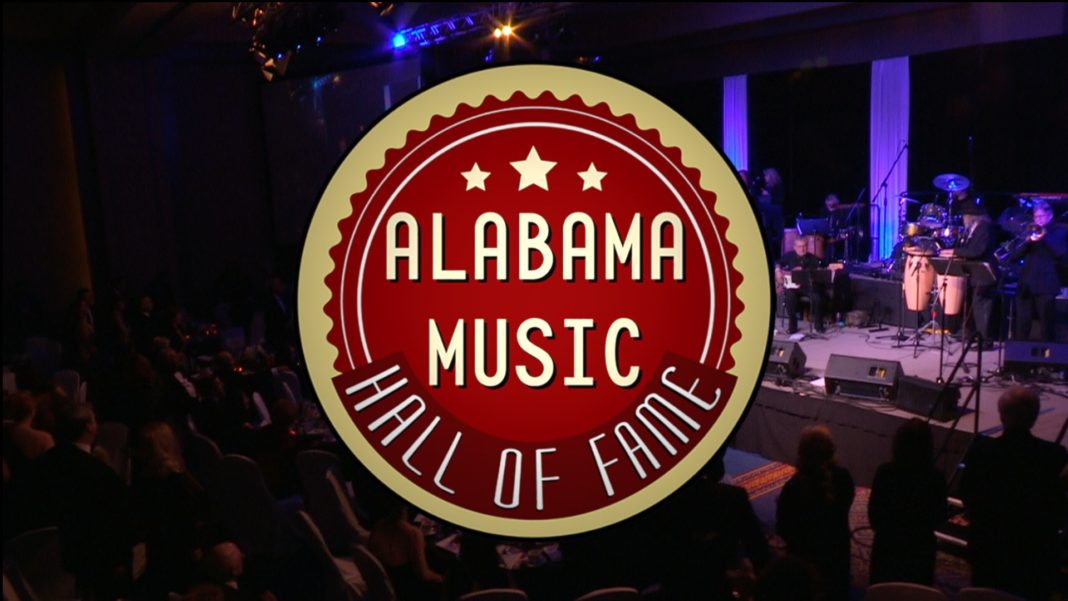Do You know these song lines: “Oh Lordy, trouble so hard. Oh Lordy, trouble so hard. Don’t nobody know my troubles but God…”? It’s supposedly that some of us remember Moby‘s “Natural Blues”. But the minority think about Vera Hall who in 1937 recorded a composition on these lyrics. Let’s “listen to” Vera Hall‘s story.
Adell “Vera” Hall Ward was born around the turn of the century in Payneville, just outside of Livingston in Sumter County, to Agnes and Efron “Zully” Hall. In a 1948 interview with the ethnomusicologist Alan Lomax, Hall recalled her mother as the disciplinarian of the family. She learned some of her first songs from her parents. In the same interview, Hall noted that her mother’s favorite song was “I’ve Got a Home in the Rock,” and her father’s favorite song was “When I’m Standing Wondering, Lord, Show Me the Way.”
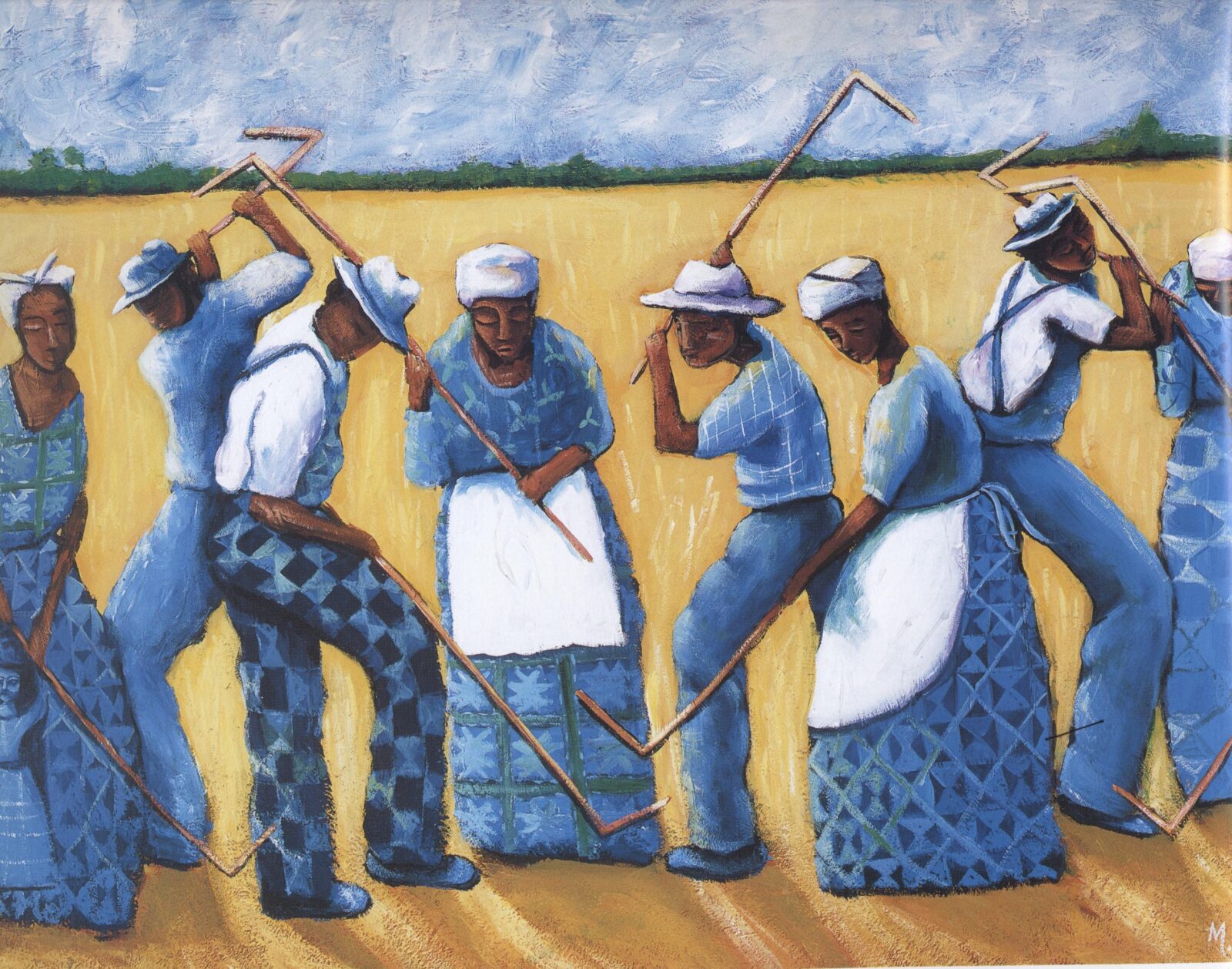
Hall’s family, though poor, appeared to be better off than others in their community. Hall‘s father Ephron owned both a horse and wagon, and the family farm fed them with a variety of vegetables and livestock. Hall noted that if her mother needed money she would sell eggs or vegetables to help with other needs that the family had. At the age of 11, Hall began taking care of children for families in Livingston. While traveling with one family in Tuscaloosa, Hall met Nels Riddle of Tuscaloosa, around 1917. Vera was almost 16 at the time of the marriage.
Following their marriage in 1918, she and Nels had one daughter, Minnie Ada, in 1920. According to singer, her husband worked in the coal mines and was fatally shot in a fight in either 1923 or 1924.
Often singers made distinctions in the types of songs that they performed. For Hall, these would have fallen into the categories of play-party songs, singing games in which children provided vocal accompaniment; spirituals that were religious in nature; work songs that often accompanied occupations such as railroad songs; and blues songs, which often reflected human conflict and tragedy. These blues spoke of the singer’s experiences, and often shed light on social contexts of the period. Hall sang all types of songs. Alan Lomax praised her as having the “loveliest untrained voice [he] had ever recorded.”
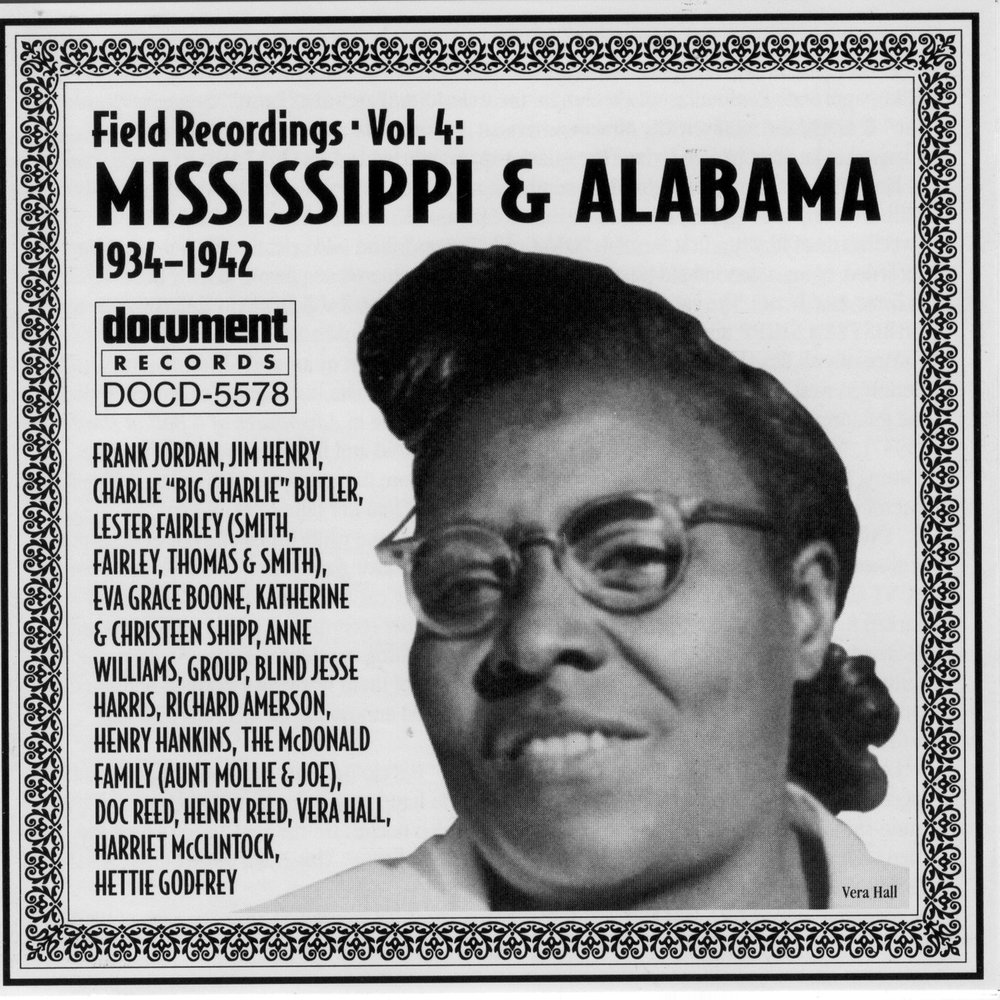 In 1937, Hall and her cousin Dock Reed together recorded songs such as “Mourin’ Song,” “Oh, Jesus, Jes’ Write My Name,” and “Let Me Ride”. John Lomax (Alan‘s father’s, a pioneering musicologist) recorded Hall by herself singing spirituals such as “I Feel Like My Time Ain’t Long,” “I Believe, I’ll Go Back Home,” and “John Saw Dat Number.” When her cousin was not present, Hall recorded folk songs such as “Railroad Bill,” “John Henry,” “Little Sally Walker,” and “Stagolee.” In subsequent trips, Lomax would record Vera singing both spirituals and blues and folk songs including “Another Man Done Gone,” “Trouble So Hard,” “Boll Weevil Blues,” and “Wild Ox Moan.”
In 1937, Hall and her cousin Dock Reed together recorded songs such as “Mourin’ Song,” “Oh, Jesus, Jes’ Write My Name,” and “Let Me Ride”. John Lomax (Alan‘s father’s, a pioneering musicologist) recorded Hall by herself singing spirituals such as “I Feel Like My Time Ain’t Long,” “I Believe, I’ll Go Back Home,” and “John Saw Dat Number.” When her cousin was not present, Hall recorded folk songs such as “Railroad Bill,” “John Henry,” “Little Sally Walker,” and “Stagolee.” In subsequent trips, Lomax would record Vera singing both spirituals and blues and folk songs including “Another Man Done Gone,” “Trouble So Hard,” “Boll Weevil Blues,” and “Wild Ox Moan.”Her recording of “Another Man Done Gone” as an example of folk music in the United States. This recording was also played during a commemoration ceremony of the Emancipation Proclamation at the Library of Congress.
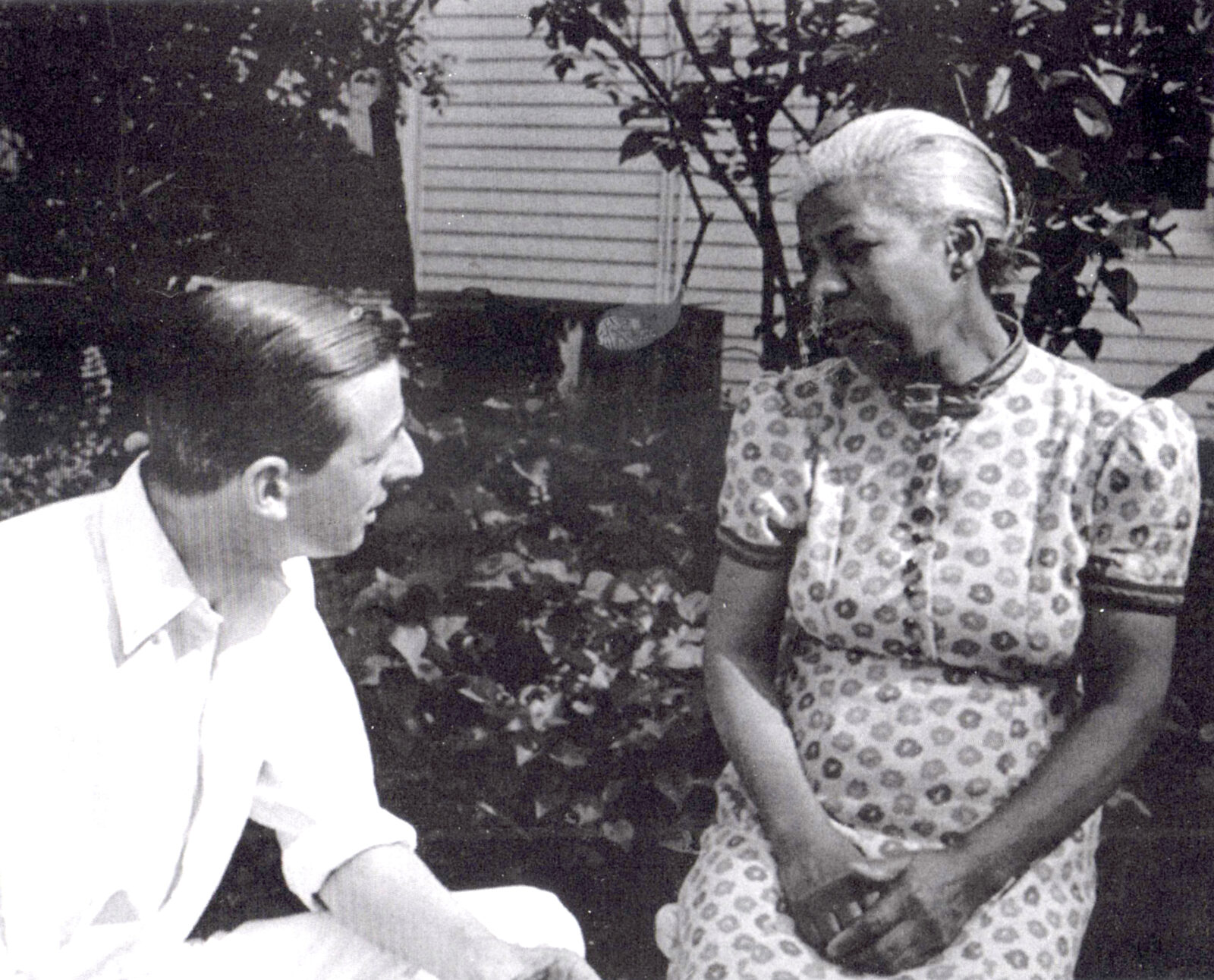
In 1948, Vera Hall traveled with John Lomax’s son, Alan, to New York and performed at the American Music Festival at Columbia University on May 15. During the trip, Alan and his wife, Elizabeth, conducted interviews with Hall that appeared in a fictional biographical portrayal of Hall in the novel, The Rainbow Sign, published by Duell, Solan, and Pearce in 1959. In the early 1950s, Vera worked with the another ethnomusicologist Harold Courlander, who was making recordings for the American Folkways Collection. In the recordings, Mrs. Hall again sang spirituals with her cousin, and sang secular songs when Reed was not present.
Little is known about Hall after the Courlander recordings and the publication of The Rainbow Sign other than that she continued to work as washerwoman and cook. In 1964, Adell “Vera” Hall died and was buried in the Livingston Cemetery near Morning Star Baptist Church. Her gravesite is now lost, after the wooden cross marking the site was bulldozed away at some time in the 1970s.
A new generation of listeners discovered Hall following the 1999 release of techno-artist Moby’s multi-platinum album Play, which incorporated Hall’s version of “Trouble So Hard.”
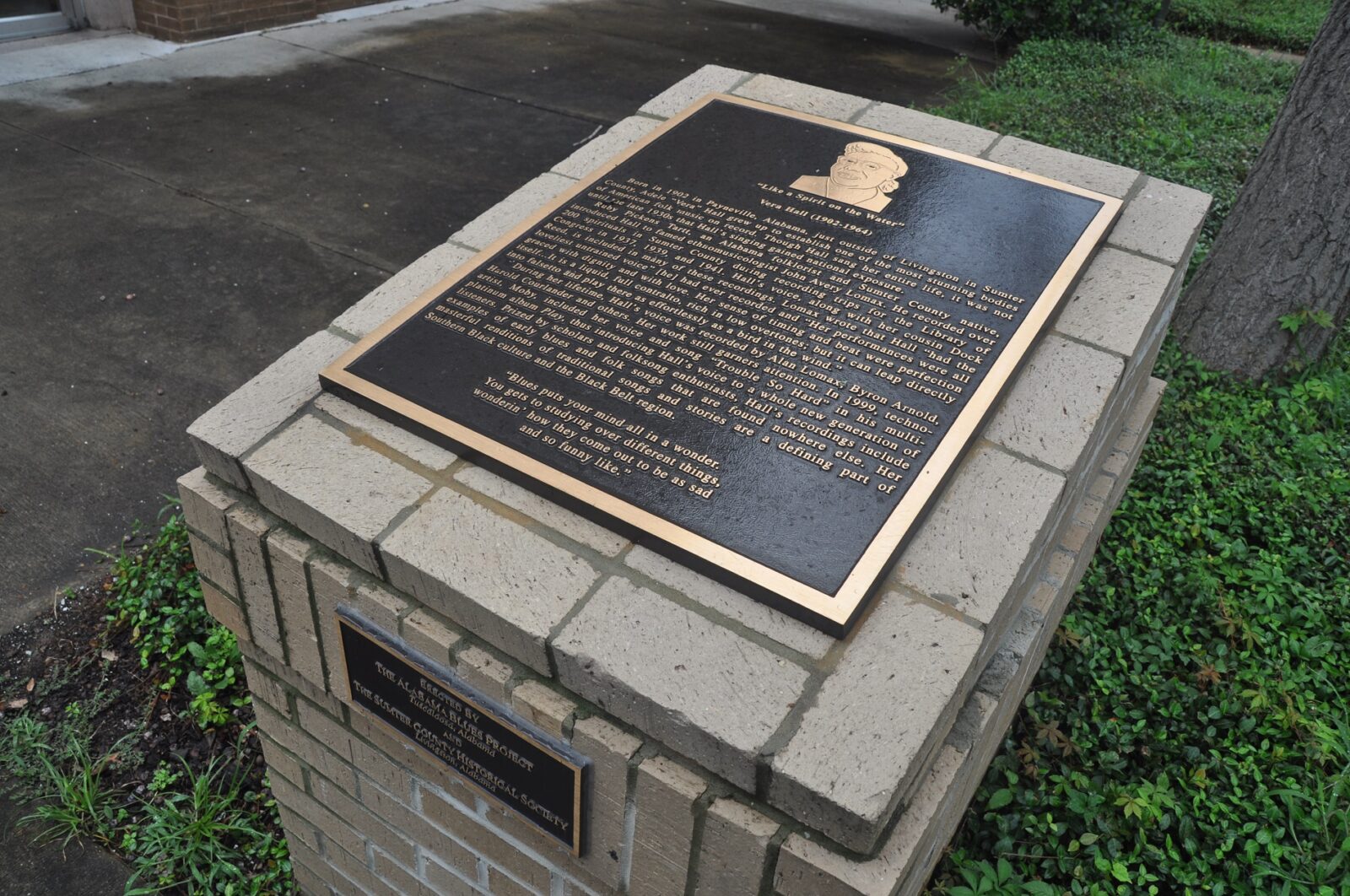
In March 2005, Vera Hall was included in the Alabama Women’s Hall of Fame, housed on the campus of Judson College. On April 21, 2007, the Sumter County Historical Society and the Alabama Blues Project unveiled a memorial to Hall adjacent to the courthouse square.
Vera Hall was one of the American outstanding women, whose voice could “bewitch” the whole nation. And her recordings make us sink into something mystic.






